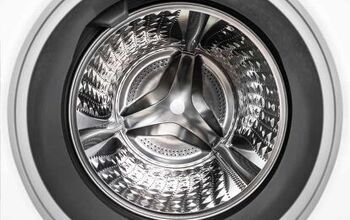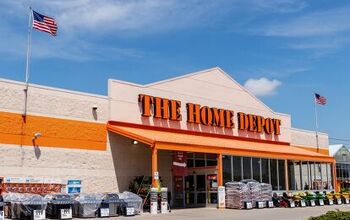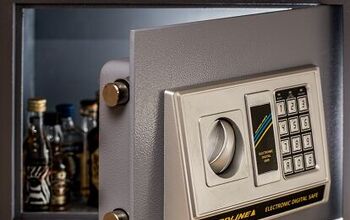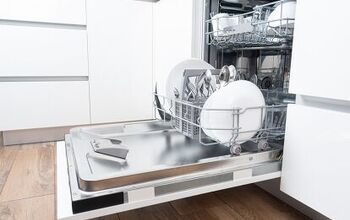Can You Buy A House With Bad Credit?

To anyone trying to buy a house, a credit score might seem like some kind of Holy Grail. Except instead of endowing you with immortality, it grants you low interest rates and eternal loan approvals. All joking aside, if you’re struggling with a low credit score, you might be wondering if you can even buy a house with bad credit.
It’s possible to buy a house with bad credit, but it’s not easy. Many lenders require a minimum score, which could be 500 or 720, depending on their risk tolerance. But if you manage to secure a loan with a bad credit score, your interest rate will pay the price. If time is on your side, improve your credit score in the months leading up to your house hunt.
If you’re ready to buy a house, your credit score might have other plans. Know your score and understand how it affects your home-buying action.
What Is The Lowest Credit Score To Buy A House?
Credit scores fall on a scale between 300 and 850. There isn't one specific number that represents a credit score too low to buy a house. Some lenders may set their minimum score at 500. Others won't even consider lending you money if you don't have at least a 700 credit score. The takeaway is the lowest credit score you can have and still buy a house varies by lender, so you'll need to shop around.
It Isn’t Just About Your Credit Score
The thing is, when it comes to your credit score, the lender doesn’t even really care about the actual number. What they’re really concerned about is your credit risk, and if you’ll pay them back.
Therefore, lenders look at several variables to determine your big picture. In addition to your credit score, mortgage lenders assess your income, how much home you want to buy, your current debt situation, and your job stability. All of these elements together paint a clearer picture of your overall ability to repay your loan.
Four Tips For Buying A House With Bad Credit
If you have bad credit, your best bet is to be patient and take the time to improve your credit situation before you start house hunting. Having a higher score will make the homebuying process go a lot more smoothly, although, admittedly, it still isn’t a guarantee.
Remember, your credit score is only one part of what lenders look at to determine if you qualify for a home loan. But what if you need to buy a house right now, with your credit as-is? It’s not impossible, but you’ll certainly need to jump through some extra hoops.
Be prepared to do extra research, find knowledgeable professionals to help you, and work on your credit. Even if you can’t improve it, you need to at least make sure it doesn’t get any worse.
1. Get An Accurate Assessment Of Your Credit Score
Meet with a lender to get an accurate assessment of your current home-buying qualifications. You can’t get where you’re going if you don’t know where you are.
As part of this process, it’s essential to examine your credit report and make sure there aren’t any discrepancies. According to a survey by Consumer Reports, 34% of participants discovered errors on their credit reports.
This review is something you should be doing annually. But if you haven’t looked at your report in a while, or at all, now is the time. You can access your credit reports from the three major credit-reporting agencies (Experian, Equifax, and Transunion) for free via annualcreditreport.com.
If you discover any mistakes, contact the company’s resolution center immediately to file a dispute. Once you have an accurate assessment of your credit score and credit history, it’s time to move forward.
2. Understand Your Loan Options For Your Credit Score
Depending on your credit score, you’ll have different loan options available to you. Discuss these with your lender to determine which one would be the best option in your situation.
Minimum loan requirements can change at any time, but for a conventional loan, you typically need a minimum 620 credit score. Although some lenders might approve you with a lower score, it’s not likely, or it comes at a much higher interest rate. Most lenders also require a score of at least 620 for VA loans, although you can find some that will go as low as 500.
If you’re buying a home in rural areas or specific suburban locations, you could qualify for a no-down-payment USDA loan. Typically, lenders want to see a score of 640. But they’ll consider lower scores if other parts of your financial picture look solid.
FHA loans require a minimum credit score of 580 and allow you to put just 3.5% down. However, some lenders will consider scores as low as 500 if you can boost your down payment up to 10%. In some cases, you can even find lenders that will work with you if you have no credit at all.
In addition to loan types, ask your lender about any potential homebuying programs you might qualify for. Overall, make sure to know and understand all of your options.
3. Don’t Do Anything That Can Lower Your Score
Avoid anything that could jeopardize your credit score while you’re house hunting. Making big purchases, quitting your job, applying for credit cards, and even closing out old cards all potentially lower your credit score.
These factors can also send up red flags to your lender, compromising your loan. Therefore, until the keys are in your hand and you’re officially a homeowner, at least aim to keep things status quo.
4. Work On Improving Your Credit Score
While you don't want to do anything to lower your score while house-hunting, improving it gets the green light. If your score jumps up while you’re looking at houses, meet with your lender.
See how your higher score changes your big picture. It could qualify you for a lower interest rate or a different type of loan. If time is on your side, start improving your credit several months before you start your home search. This early preparation puts you in the best possible position to buy a house.
Quick Tips For Fixing Bad Credit
If you’re not in a rush to buy a home, it’s worth taking some time to repair your credit first and boost your score. Even if you can’t reach the 750+ range, moving your score from 500 to 580 can make a big difference.
Here’s a quick checklist of how to improve your credit score before you buy a house.
- Check your credit report to get an accurate picture of your current situation.
- Dispute and clear up any errors in your report.
- If you have any accounts past due, make them current.
- Set up auto-pay on your accounts to avoid future late payments.
- Maintain a low credit utilization rate. Basically, stop taking out loans and racking up more on your credit cards.
- Pay down your current debt as much as possible.
- Don’t take on any new debt.
- Avoid closing out any accounts so you don’t lose your credit history.
- Consider using a secured credit card to help you build your current credit without amassing more debt. (A secured card draws from money you put into a designated account, so it will only let you spend up to the amount available.)
- If you’re in a big pickle, you may need to speak with a nonprofit credit counselor.
Bad Credit Doesn’t Mean You Can’t Buy A House, But It Does Add Challenges
Buying a house with bad credit isn’t out of the question, but it’s undoubtedly more difficult and will cost you more in the long run. If you have the time to improve your credit before house hunting, do it.
However, if time isn't on your side, know your options and make sure your current credit report is accurate. Do everything you can to keep your credit score from dropping and work toward improving it as you look at homes.
Remember, your credit score is only one piece of your whole financial puzzle, so lenders will look at every angle. Above all, be honest, don’t try to cover up or lie about your situation, and do your research. It’s up to you to know your options and put yourself in the best possible position to be a future homeowner.
Related Guides:

Stacy Randall is a wife, mother, and freelance writer from NOLA that has always had a love for DIY projects, home organization, and making spaces beautiful. Together with her husband, she has been spending the last several years lovingly renovating her grandparent's former home, making it their own and learning a lot about life along the way.
More by Stacy Randall



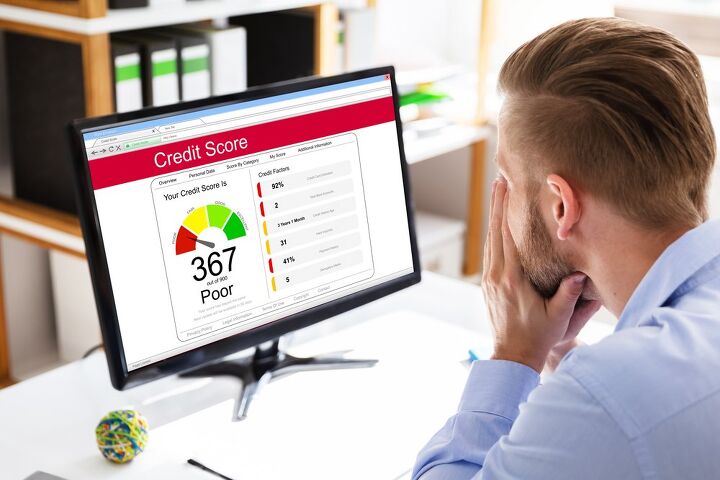









![The 10 Best Table Saws - [2022 Reviews & Buyer's Guide]](https://cdn-fastly.upgradedhome.com/media/2023/07/31/9070645/the-10-best-table-saws-2022-reviews-buyer-s-guide.jpg?size=350x220)


